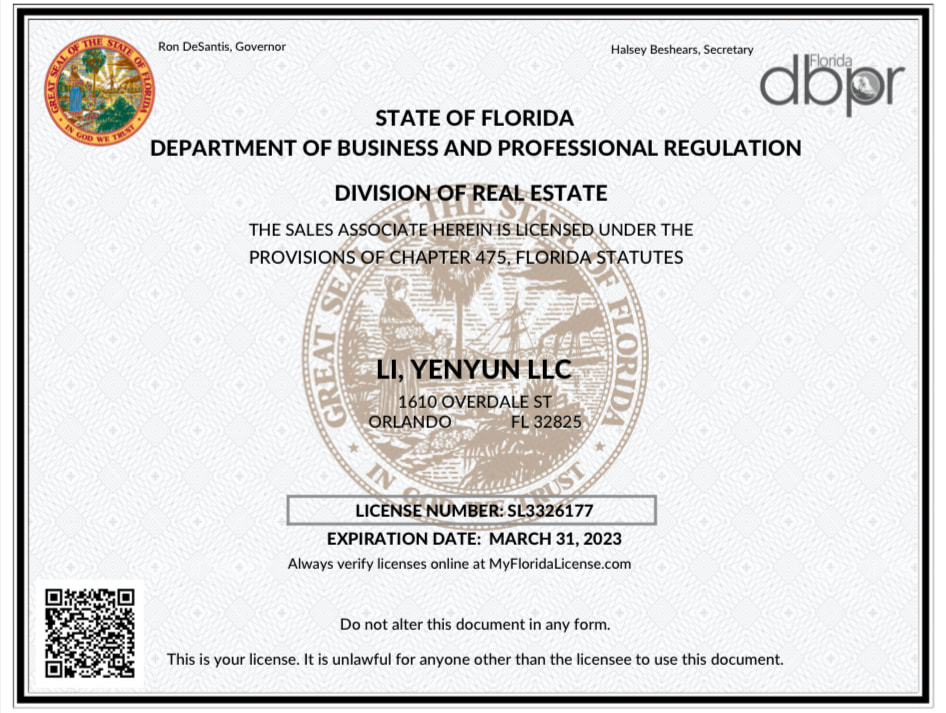
Michigan realty agents need to be able to calculate their commission. Because agents get paid on a percentage basis and are usually paid from the proceeds of a property's sale, this is important. Make sure to find the best agent.
Michigan's realty commission ranges anywhere from 4% to 6 percent. However, it is not unusual to negotiate the fee. A buyer's representative is usually paid, but the amount varies from one home to another. To sell your home, you will need to hire a realty attorney to assist with the closing documents.
Real estate commissions can be split between the buyer's and seller's agents, depending on whether they are associated with a brokerage. A Michigan buyer's agent will typically get between 2.5% and 3% of the sale price. A landlord will also pay the listing agent half a month rent for the property.

The commissions of agents are negotiable and there are newer models for selling houses that offer lower commissions. Flat Fee MLS listing allows you list your home for a flat rate.
A luxury property can be used to get a discount on a realty agent. This can be beneficial for both buyers as well as sellers. It can also make your home more attractive to potential buyers.
If you plan to sell your home, you'll want to ensure that your real estate agent understands your vision for the house. This will allow them to highlight the unique aspects of your home and find you the most qualified buyers. Your realtor will also be responsible for helping you order pictures, as well as provide information about your property.
Michigan homeowners are more willing to pay a broker's help than buyers in other states. While your real estate agent may not be able to negotiate your commission, he or she can still help you maximize your profits.

To find out the commission rate in your area, you can search on a number of websites. Depending on the size of your home, you'll need to budget for the cost of the commission. It is worth your time to explore all options.
Another advantage of using a Realtor in Michigan is that you'll be able to get your property on the MLS. It will increase your home's exposure to potential buyers by listing it on the MLS. You'll also be able to save money on closing costs. These can vary depending on the property's value and on the local economy.
It can sometimes be difficult to find Michigan's best Realtor without a high-priced commission. If you are able to calculate the commission of your agent, you can negotiate a great deal.
FAQ
What is reverse mortgage?
A reverse mortgage lets you borrow money directly from your home. You can draw money from your home equity, while you live in the property. There are two types to choose from: government-insured or conventional. A conventional reverse mortgage requires that you repay the entire amount borrowed, plus an origination fee. If you choose FHA insurance, the repayment is covered by the federal government.
Should I rent or purchase a condo?
Renting could be a good choice if you intend to rent your condo for a shorter period. Renting will allow you to avoid the monthly maintenance fees and other charges. The condo you buy gives you the right to use the unit. You are free to make use of the space as you wish.
Do I need flood insurance
Flood Insurance protects against damage caused by flooding. Flood insurance protects your belongings and helps you to pay your mortgage. Learn more about flood insurance here.
Is it possible to get a second mortgage?
Yes, but it's advisable to consult a professional when deciding whether or not to obtain one. A second mortgage is usually used to consolidate existing debts and to finance home improvements.
What are the 3 most important considerations when buying a property?
Location, price and size are the three most important aspects to consider when purchasing any type of home. Location refers the area you desire to live. Price refers to what you're willing to pay for the property. Size refers to the space that you need.
How do I fix my roof
Roofs can leak due to age, wear, improper maintenance, or weather issues. For minor repairs and replacements, roofing contractors are available. Contact us for more information.
How can I determine if my home is worth it?
Your home may not be priced correctly if your asking price is too low. A home that is priced well below its market value may not attract enough buyers. To learn more about current market conditions, you can download our free Home Value Report.
Statistics
- When it came to buying a home in 2015, experts predicted that mortgage rates would surpass five percent, yet interest rates remained below four percent. (fortunebuilders.com)
- It's possible to get approved for an FHA loan with a credit score as low as 580 and a down payment of 3.5% or a credit score as low as 500 and a 10% down payment.5 Specialty mortgage loans are loans that don't fit into the conventional or FHA loan categories. (investopedia.com)
- This means that all of your housing-related expenses each month do not exceed 43% of your monthly income. (fortunebuilders.com)
- 10 years ago, homeownership was nearly 70%. (fortunebuilders.com)
- Based on your credit scores and other financial details, your lender offers you a 3.5% interest rate on loan. (investopedia.com)
External Links
How To
How to locate an apartment
When moving to a new area, the first step is finding an apartment. This requires planning and research. It includes finding the right neighborhood, researching neighborhoods, reading reviews, and making phone calls. You have many options. Some are more difficult than others. The following steps should be considered before renting an apartment.
-
You can gather data offline as well as online to research your neighborhood. Online resources include Yelp. Zillow. Trulia. Realtor.com. Other sources of information include local newspapers, landlords, agents in real estate, friends, neighbors and social media.
-
See reviews about the place you are interested in moving to. Yelp and TripAdvisor review houses. Amazon and Amazon also have detailed reviews. You can also find local newspapers and visit your local library.
-
You can make phone calls to obtain more information and speak to residents who have lived there. Ask them about what they liked or didn't like about the area. Also, ask if anyone has any recommendations for good places to live.
-
Check out the rent prices for the areas that interest you. Consider renting somewhere that is less expensive if food is your main concern. On the other hand, if you plan on spending a lot of money on entertainment, consider living in a more expensive location.
-
Learn more about the apartment community you are interested in. How big is the apartment complex? How much does it cost? Is the facility pet-friendly? What amenities are there? Are there parking restrictions? Are there any special rules for tenants?